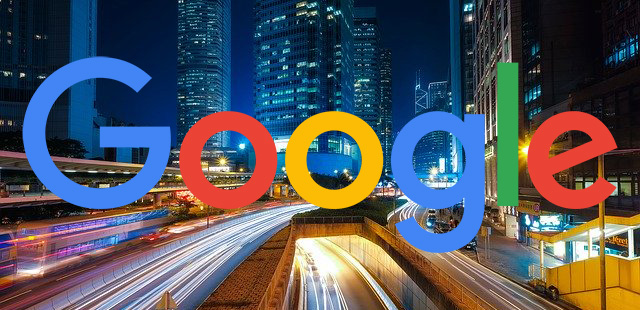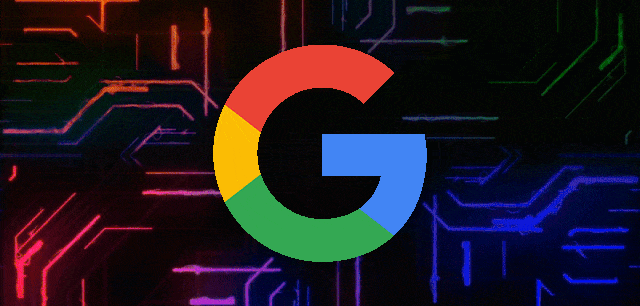Google June 2021 Core Update Impact Now Being Felt

As you know, the Google June 2021 Core Update began rolling out at about 6:30pm ET on Wednesday, June 2, 2021 but the chatter within the industry was not at core update levels. Meaning, SEOs who track these changes didn’t really say this was a big update and I still think that to be the case on some level, even this morning.
The rollout did start to pick up Saturday night (in terms of SEOs chatter, SEOs noticing the core update) through even today but it is still not at the big core update levels I would normally see. It reminds me of the September 2019 core update that took a few days to noticed after that rollout too was a slow one.
Maybe this June 2021 core update is similar to that? Who knows. We do know that Google said this June 2021 core update is two part, with another rollout coming in July. Maybe it will have more of a big bang impact of a typical core update when that part rolls out?
Don’t get me wrong, many of the tools are showing big fluctuations a day after the announcement, but the chatter is not at the levels of a typical core update in terms of the timing from when it was announced. Normally, when it is announced, within 12-24 hours we see a huge spike in chatter. But here is the chatter, there is a lot of it, but much more spread out than a typical core update, over several days since the announcement.
Here is the chatter from over the weekend and this morning from WebmasterWorld, Black Hat World and Twitter:
Keep in mind, it was mostly quiet and people asking if anyone else is noticing changes until Saturday. Comments like “I went through like 100+ sites today and am seeing absolutely nothing” is what I saw. But then Saturday, Sunday hit and we saw some chatter:
Finally hit me yesterday at 7pm EST on the dot. Down roughly 25% on my largest blog in law and government vertical. Other blogs are seeing small up and down changes. The last few days were quiet but overall May was very volatile for my blogs. I was surprised the update was announced after all the volatility in May… Hoping for a correction with the “two part update” in July. Good luck everyone it’s a bumpy ride.
I’ve seen mostly positive movements here. Both of my websites recovering significantly from the previous core update.
Huge hit suddenly over the last few hours. Semrush shows our ranks plummeting site-wide. Entertainment / education.
Since today started noticing changes. It is very hard to say what exactly the impact is, but it seems negative right now. Have a reason to believe that in further week SERPs can start moving drastically, and we will see the final result for this update.
The last few days it was quiet, now the update is showing its face. As always, when we have improved the site again despite all the highs / lows and increased our income, it goes down again.
I’m seeing another big drop in both ranking and in traffic to my most important pages. My home page and my more popular landing pages with the most inbound links all vanished and have had one visit this morning. For the first time ever I am seeing low rank and low traffic interior pages receive more visits than my top ranking pages. For me this seems to be an indication of some sort of penalty in action. I’m finding myself dropping to page five for terms that I was at the top for years, and it’s not because the other sites have high DA, links or content.
To be honest, I’m pretty panicked seeing the results for my site. I’ve done nothing drastic to my site / structure for a long time. It’s naturally grown over 20 years, naturally gaining backlinks from articles, etc. I don’t do anything “spammy”, just concentrate on doing what my clients want (high-quality content) with regular updates and improvements to the design every 18 months or so.
If these results I’m seeing now stick, it’s game over for me as 80%+ of my business comes from organic results. I can’t afford to spent thousands on advertising.
Oh lordie, Google has just unhooked one of my sites. I only have a handful so it’s noticeable.
What do I mean by unhooked? I mean it’s getting the same amount of traffic but it’s no longer US based, now it’s coming from all countries wether they speak the language or not. Same amount overall but a 70% drop from the US. My site would have to be being translated for that to make sense.
Big drop for us so far.
But this time we got hit with updated rolling out. With prior we got a boost while updated started and got demoted some days later. Hope this time is different.
My site has lost about 30% since a few days But also almost all of my competitors
Niche is design and marketing
I have seen an increase in impressions on 5 sites. All are showing slightly more impressions in the past 3-4 days
Rankings are down on my site so far.
Lost 50% of my traffic
am i the only one with positive results? =)
Massive improvement for the company site I work for, 125% increase in traffic Sunday vs previous week, large ranking increases – hope it sticks!
They seemed to test this two weeks ago, my rankings spiked but it only lasted a few hours and shot straight back down. Rankings seem very similar to then.
Here are some charts from Twitter:
And on the flip side, I’m seeing some sites w/big decreases in visibility. Some of the sites have seen their fair share of volatility during prev broad core updates. Also worth noting that I’m seeing some sites impacted by the Product Reviews Update see big movement. Stay tuned: pic.twitter.com/IGZ2gjS3Mg
— Glenn Gabe (@glenngabe) June 6, 2021
This affiliate site is going to be excited based on the June update. It’s surging after getting hammered by the December broad core update. Some significant ranking changes for important keywords. I’m sure they will be nervous about the July update, which could reverse some of it pic.twitter.com/06ZcUpoYho
— Glenn Gabe (@glenngabe) June 6, 2021
Continuing my thread of impact based on the June 2021 core update, this reviews site surged on 6/5 after getting hammered by the Dec 2020 core update. It also surged during the Product Reviews Update & now surged more. They are having a good few months. We’ll see what July brings pic.twitter.com/fm7gDGUfc5
— Glenn Gabe (@glenngabe) June 7, 2021
Small one caught the wave pic.twitter.com/0YYmBD90O9
— Alex Birman (@oreshki) June 6, 2021
Starting to see a ~40% increase in organic traffic to a site we’ve been busting our you-know-whats on for 6+ months.
It’s still super early, so hopefully the trend continues.
The work was NOT easy. pic.twitter.com/ZQhpyAvris
— Lily Ray 😏 (@lilyraynyc) June 7, 2021
Seeing this Google Broad Core Algorithm on June 6 hit this travel site. Interesting to see the new results above don’t match user intent as much as the previous results were. Thinking this will probably be reversed in July. pic.twitter.com/N8fhwaUio2
— Jacob King Stanley (@jacobkstanley) June 7, 2021
UK – Finance pic.twitter.com/oY1AcG3h6z
— Sam Taylor (@_spamtaylor) June 7, 2021
Huge Drop in my micro niche blog of Tech pic.twitter.com/vcxPluxz8r
— Ashvin Sanghani (@Ashvin1351) June 7, 2021
Edu – Poland pic.twitter.com/1MEytHrJHZ
— piotr krzaczkowski (@krzak) June 7, 2021
FR – marketplace pic.twitter.com/icdU5EZKaq
— Carlos Ortega (@carlos_darko) June 7, 2021
Spain – Medic pic.twitter.com/Z9TEkOYnlS
— Miguel ۞ (@mgdpseo) June 7, 2021
I track over 20k keywords in the (mostly) local space. Looks like the 2nd largest algo update of the year so far. pic.twitter.com/KiBoSkAXsP
— Mike Perez (@highrank) June 7, 2021
So there is movement and for some sites, really big movement.
Here are how the automated tracking tools are pacing right now.
It is interesting to see that some of the tools follow the chatter, where there was a delay from the Google announcement to when SEOs noticed changes on Sunday or so. But some saw changes prior to the chatter from within the industry – makes you wonder.
Forum discussion at WebmasterWorld and Black Hat World.
AI
Exploring the Evolution of Language Translation: A Comparative Analysis of AI Chatbots and Google Translate

According to an article on PCMag, while Google Translate makes translating sentences into over 100 languages easy, regular users acknowledge that there’s still room for improvement.
In theory, large language models (LLMs) such as ChatGPT are expected to bring about a new era in language translation. These models consume vast amounts of text-based training data and real-time feedback from users worldwide, enabling them to quickly learn to generate coherent, human-like sentences in a wide range of languages.
However, despite the anticipation that ChatGPT would revolutionize translation, previous experiences have shown that such expectations are often inaccurate, posing challenges for translation accuracy. To put these claims to the test, PCMag conducted a blind test, asking fluent speakers of eight non-English languages to evaluate the translation results from various AI services.
The test compared ChatGPT (both the free and paid versions) to Google Translate, as well as to other competing chatbots such as Microsoft Copilot and Google Gemini. The evaluation involved comparing the translation quality for two test paragraphs across different languages, including Polish, French, Korean, Spanish, Arabic, Tagalog, and Amharic.
In the first test conducted in June 2023, participants consistently favored AI chatbots over Google Translate. ChatGPT, Google Bard (now Gemini), and Microsoft Bing outperformed Google Translate, with ChatGPT receiving the highest praise. ChatGPT demonstrated superior performance in converting colloquialisms, while Google Translate often provided literal translations that lacked cultural nuance.
For instance, ChatGPT accurately translated colloquial expressions like “blow off steam,” whereas Google Translate produced more literal translations that failed to resonate across cultures. Participants appreciated ChatGPT’s ability to maintain consistent levels of formality and its consideration of gender options in translations.
The success of AI chatbots like ChatGPT can be attributed to reinforcement learning with human feedback (RLHF), which allows these models to learn from human preferences and produce culturally appropriate translations, particularly for non-native speakers. However, it’s essential to note that while AI chatbots outperformed Google Translate, they still had limitations and occasional inaccuracies.
In a subsequent test, PCMag evaluated different versions of ChatGPT, including the free and paid versions, as well as language-specific AI agents from OpenAI’s GPTStore. The paid version of ChatGPT, known as ChatGPT Plus, consistently delivered the best translations across various languages. However, Google Translate also showed improvement, performing surprisingly well compared to previous tests.
Overall, while ChatGPT Plus emerged as the preferred choice for translation, Google Translate demonstrated notable improvement, challenging the notion that AI chatbots are always superior to traditional translation tools.
Source: https://www.pcmag.com/articles/google-translate-vs-chatgpt-which-is-the-best-language-translator
Google Implements Stricter Guidelines for Mass Email Senders to Gmail Users

Beginning in April, Gmail senders bombarding users with unwanted mass emails will encounter a surge in message rejections unless they comply with the freshly minted Gmail email sender protocols, Google cautions.
Fresh Guidelines for Dispatching Mass Emails to Gmail Inboxes In an elucidative piece featured on Forbes, it was highlighted that novel regulations are being ushered in to shield Gmail users from the deluge of unsolicited mass emails. Initially, there were reports surfacing about certain marketers receiving error notifications pertaining to messages dispatched to Gmail accounts. Nonetheless, a Google representative clarified that these specific errors, denoted as 550-5.7.56, weren’t novel but rather stemmed from existing authentication prerequisites.
Moreover, Google has verified that commencing from April, they will initiate “the rejection of a portion of non-compliant email traffic, progressively escalating the rejection rate over time.” Google elaborates that, for instance, if 75% of the traffic adheres to the new email sender authentication criteria, then a portion of the remaining non-conforming 25% will face rejection. The exact proportion remains undisclosed. Google does assert that the implementation of the new regulations will be executed in a “step-by-step fashion.”
This cautious and methodical strategy seems to have already kicked off, with transient errors affecting a “fraction of their non-compliant email traffic” coming into play this month. Additionally, Google stipulates that bulk senders will be granted until June 1 to integrate “one-click unsubscribe” in all commercial or promotional correspondence.
Exclusively Personal Gmail Accounts Subject to Rejection These alterations exclusively affect bulk emails dispatched to personal Gmail accounts. Entities sending out mass emails, specifically those transmitting a minimum of 5,000 messages daily to Gmail accounts, will be mandated to authenticate outgoing emails and “refrain from dispatching unsolicited emails.” The 5,000 message threshold is tabulated based on emails transmitted from the same principal domain, irrespective of the employment of subdomains. Once the threshold is met, the domain is categorized as a permanent bulk sender.
These guidelines do not extend to communications directed at Google Workspace accounts, although all senders, including those utilizing Google Workspace, are required to adhere to the updated criteria.
Augmented Security and Enhanced Oversight for Gmail Users A Google spokesperson emphasized that these requisites are being rolled out to “fortify sender-side security and augment user control over inbox contents even further.” For the recipient, this translates to heightened trust in the authenticity of the email sender, thus mitigating the risk of falling prey to phishing attempts, a tactic frequently exploited by malevolent entities capitalizing on authentication vulnerabilities. “If anything,” the spokesperson concludes, “meeting these stipulations should facilitate senders in reaching their intended recipients more efficiently, with reduced risks of spoofing and hijacking by malicious actors.”
Google’s Next-Gen AI Chatbot, Gemini, Faces Delays: What to Expect When It Finally Launches

In an unexpected turn of events, Google has chosen to postpone the much-anticipated debut of its revolutionary generative AI model, Gemini. Initially poised to make waves this week, the unveiling has now been rescheduled for early next year, specifically in January.
Gemini is set to redefine the landscape of conversational AI, representing Google’s most potent endeavor in this domain to date. Positioned as a multimodal AI chatbot, Gemini boasts the capability to process diverse data types. This includes a unique proficiency in comprehending and generating text, images, and various content formats, even going so far as to create an entire website based on a combination of sketches and written descriptions.
Originally, Google had planned an elaborate series of launch events spanning California, New York, and Washington. Regrettably, these events have been canceled due to concerns about Gemini’s responsiveness to non-English prompts. According to anonymous sources cited by The Information, Google’s Chief Executive, Sundar Pichai, personally decided to postpone the launch, acknowledging the importance of global support as a key feature of Gemini’s capabilities.
Gemini is expected to surpass the renowned ChatGPT, powered by OpenAI’s GPT-4 model, and preliminary private tests have shown promising results. Fueled by significantly enhanced computing power, Gemini has outperformed GPT-4, particularly in FLOPS (Floating Point Operations Per Second), owing to its access to a multitude of high-end AI accelerators through the Google Cloud platform.
SemiAnalysis, a research firm affiliated with Substack Inc., expressed in an August blog post that Gemini appears poised to “blow OpenAI’s model out of the water.” The extensive compute power at Google’s disposal has evidently contributed to Gemini’s superior performance.
Google’s Vice President and Manager of Bard and Google Assistant, Sissie Hsiao, offered insights into Gemini’s capabilities, citing examples like generating novel images in response to specific requests, such as illustrating the steps to ice a three-layer cake.
While Google’s current generative AI offering, Bard, has showcased noteworthy accomplishments, it has struggled to achieve the same level of consumer awareness as ChatGPT. Gemini, with its unparalleled capabilities, is expected to be a game-changer, demonstrating impressive multimodal functionalities never seen before.
During the initial announcement at Google’s I/O developer conference in May, the company emphasized Gemini’s multimodal prowess and its developer-friendly nature. An application programming interface (API) is under development, allowing developers to seamlessly integrate Gemini into third-party applications.
As the world awaits the delayed unveiling of Gemini, the stakes are high, with Google aiming to revolutionize the AI landscape and solidify its position as a leader in generative artificial intelligence. The postponed launch only adds to the anticipation surrounding Gemini’s eventual debut in the coming year.
-

 SEO7 days ago
SEO7 days agoGoogle Limits News Links In California Over Proposed ‘Link Tax’ Law
-

 SEARCHENGINES6 days ago
SEARCHENGINES6 days agoGoogle Core Update Volatility, Helpful Content Update Gone, Dangerous Google Search Results & Google Ads Confusion
-

 SEO6 days ago
SEO6 days ago10 Paid Search & PPC Planning Best Practices
-

 MARKETING7 days ago
MARKETING7 days ago2 Ways to Take Back the Power in Your Business: Part 2
-

 MARKETING5 days ago
MARKETING5 days ago5 Psychological Tactics to Write Better Emails
-

 SEARCHENGINES5 days ago
SEARCHENGINES5 days agoWeekend Google Core Ranking Volatility
-

 PPC7 days ago
PPC7 days agoCritical Display Error in Brand Safety Metrics On Twitter/X Corrected
-

 MARKETING6 days ago
MARKETING6 days agoThe power of program management in martech
















You must be logged in to post a comment Login